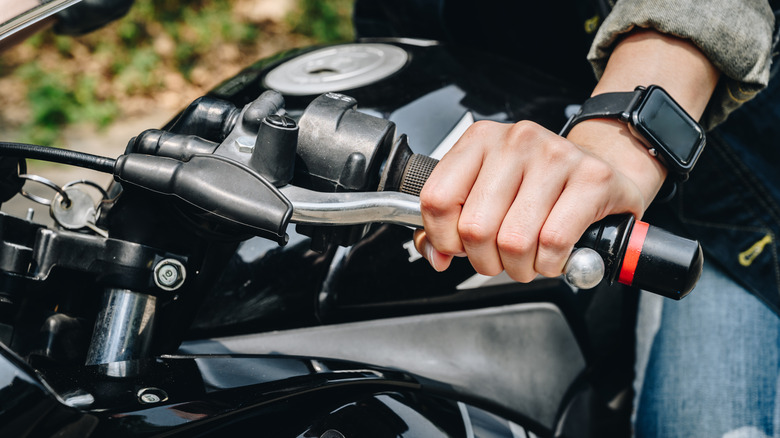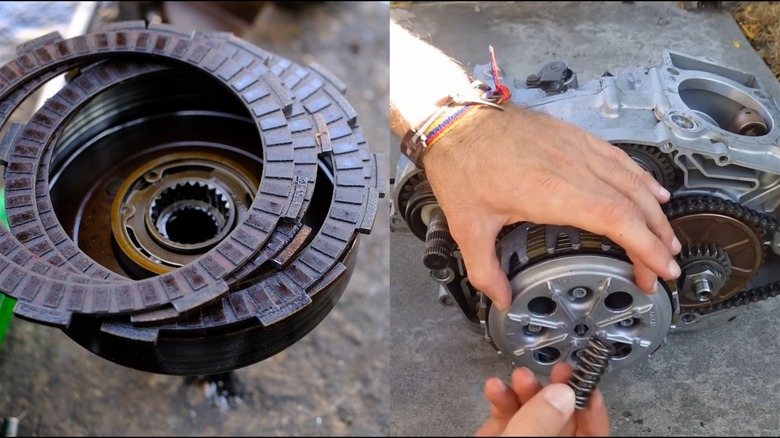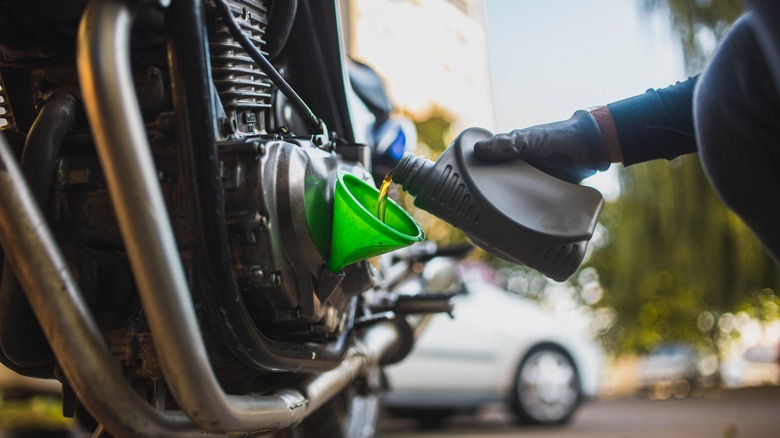Motorcycle Clutch Slipping? Here Are A Few Possible Causes
Few things ruin a ride faster than mechanical difficulties, as those who have experienced revving up their bike and getting no acceleration know all too well. There are a number of reasons your clutch could be having trouble, but commonly, a slipping clutch is the result of aging components, using too much oil or the wrong oil type. There are several different motorcycle transmission types, and it's crucial to understand how they work, especially when you encounter problems.
A motorcycle clutch consists of several parts, including steel plates (which transfer rotational energy from the bike engine to the transmission), friction plates (disc-shaped parts that grab steel plates), and a pressure plate (which presses the friction and steel plates together between the flywheel).
When you experience a slipping clutch, it means that there isn't enough force pressing these components together to work properly, creating irregular performance. One rider described the experience as feeling like the clutch wouldn't engage when trying to accelerate quickly.
The friction plates are worn or the springs are failing
No matter what, your motorcycle and all its components are going to wear over time. There are many parts on your bike that are under stress, hot temperatures, and pressure. Within the clutch, slipping can result from the friction plates losing their ability to "grab" onto the steel plates effectively or consistently.
The friction material on these plates can vary, with more robust applications featuring a lot of high carbon composition, while others utilize Kevlar and other fiber-based compounds. Regardless, these friction plates are put through their paces every time you ride and will eventually lose their grip.
Another cause for clutch slipping could be due to failing springs. According to mnaufacturer Lesjofors Heavy Springs, a spring in general that must work against a regular or continual force can lose its ability to stay taught, especially in situations that include excessive heat, eventually suffering from something called creep. Aging springs in the clutch won't be able to create the required pressure against the pressure plate, preventing proper engagement.
You could be using too much oil or the wrong kind
There is a wide variety of oils designed specifically for certain types of engines, leaving many riders to wonder if car engine oil can be used in a motorcycle. Today's motorcycles often feature clutches drenched in oil (wet clutch design vs dry clutch) for the purposes of reducing heat, smoothing performance, and enhancing longevity.
If you add too much oil to your bike, you could experience problems, including a slipping clutch. What happens to an engine when you overfill it with oil is that it's not able to flow properly. This is why it's critical to add the proper amount of oil as per the manufacturer of your motorcycle. One tell-tale sign of a clutch that's experiencing even minimal slips is a burning smell after just a brief ride, perhaps due to an overabundance of oil.
Slipping can also occur in some bikes if you use synthetic oil, especially if you previously used a non-synthetic blend. Essentially, this becomes a scenario where the lubrication performance is so effective that the friction plates inside the clutch can't properly grip, causing slipping. This is due in part to a specific additive in many synthetic oils called Molybdenum Disulfide (Moly), which is described as one of the slickest compounds on earth.


